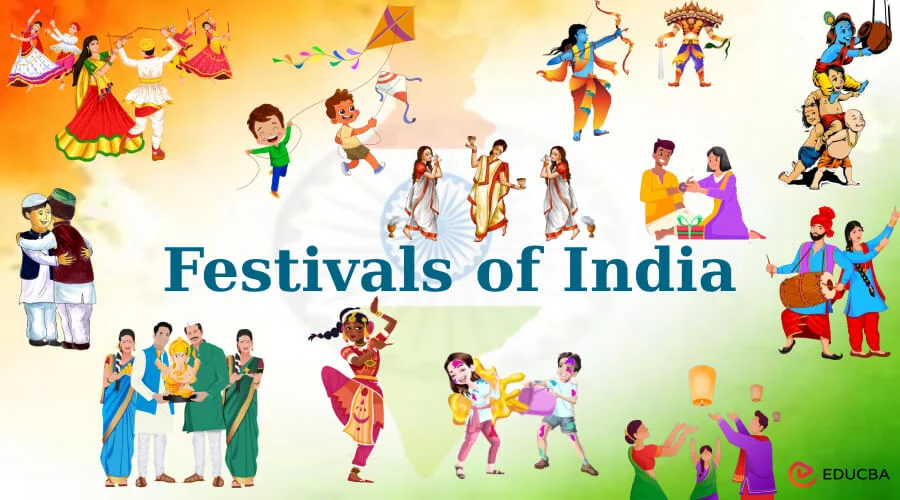The Role of Seasonal Festivals in Strengthening Community Bonds

Seasonal festivals have long been an essential part of human society, providing opportunities for people to come together and celebrate their shared values, traditions, and culture. These events, which occur at different times of the year, serve as powerful tools for strengthening community bonds, fostering a sense of belonging, and enhancing social ties.
Celebrating Shared Traditions
One of the primary ways in which seasonal festivals strengthen community bonds is by celebrating shared cultural traditions. Whether it’s the harvest festivals like Pongal or Baisakhi, the religious observances of Diwali or Eid, or regional celebrations such as Onam or Makar Sankranti, these events bring people together to honor customs passed down through generations. Participants actively engage in traditional practices, such as feasts, dances, prayers, and rituals, creating a sense of continuity and collective identity.
In communities where individuals from different backgrounds live together, seasonal festivals act as a common ground for bridging cultural gaps. Even when people come from diverse religious or cultural traditions, festivals often present an opportunity to share food, music, and joy, fostering mutual respect and understanding.
Fostering Social Interaction and Collaboration
Festivals are not just about celebrating in isolation; they encourage people to come together in large groups, collaborate, and engage in communal activities. Preparing for a festival often involves collective efforts, whether it is organizing a public feast, setting up decorations, or preparing for a dance or musical performance. In this way, festivals promote teamwork, strengthen friendships, and create a sense of collective achievement.
For instance, during Diwali, communities often join together to clean and decorate public spaces, create beautiful rangolis, and hold group prayers. Similarly, during Christmas, people gather to organize charity drives, decorate neighborhoods, and share meals. These activities build social capital and make individuals feel part of a larger, supportive community.
Nurturing a Sense of Belonging
Seasonal festivals help individuals feel a deep sense of belonging. For those living away from their hometowns, these celebrations provide a link to their cultural roots, offering comfort and nostalgia. In a world increasingly defined by urbanization and migration, festivals offer an essential connection to home, family, and tradition. Celebrating a festival together, even in a distant land, reminds people of their shared identity and cultural pride, reinforcing feelings of belonging.
Additionally, these festivals often bring together people who might not regularly interact. Neighbors, colleagues, and friends come together, engaging in rituals and activities that create a strong emotional bond. As people come together in a festive atmosphere, their differences are often set aside, creating opportunities for connection and understanding across diverse social groups.
The Power of Rituals and Symbolism
The rituals and symbolism embedded in seasonal festivals serve as powerful reminders of shared values. Festivals often carry deep spiritual or moral messages that resonate within communities. For example, the festival of Navratri, which honors the divine feminine, involves worship, fasting, and prayers that strengthen spiritual bonds. Similarly, the Makar Sankranti festival, which marks the harvest, symbolizes prosperity and the changing of seasons, encouraging gratitude for abundance and growth.
These rituals serve not only as spiritual expressions but as ways to reaffirm a collective purpose. When performed as a community, these practices create a shared sense of meaning and provide an opportunity to reflect on deeper life lessons, such as gratitude, love, and unity.
Promoting Generational Bonding
Festivals often bring together multiple generations within a family or community. The younger generation learns about traditions, rituals, and cultural practices from their elders, ensuring that cultural knowledge is passed down. This intergenerational exchange strengthens family and community bonds, preserving the continuity of cultural heritage while fostering respect between generations.
For example, children may learn to make kites during Makar Sankranti, while elders share stories of their childhood experiences. Similarly, during Durga Puja, children may help in the preparation of offerings while learning about the significance of the goddess Durga. These shared activities build a sense of tradition and heritage, enriching the experience for everyone involved.
Celebrating Diversity through Festivals
In a diverse country like India, seasonal festivals often bring together individuals from various cultural, linguistic, and religious backgrounds. These celebrations offer opportunities for cross-cultural exchange and promote unity in diversity. The act of participating in each other’s festivals—whether it’s lighting Diwali diyas, attending a Baisakhi procession, or preparing traditional holi sweets—helps break down barriers and fosters an atmosphere of inclusivity.
Festivals also create a platform for communities to showcase their unique cultural practices. This exchange of traditions fosters appreciation for diversity and encourages a deeper understanding of different customs, enhancing social cohesion and tolerance.
Conclusion
Seasonal festivals play a crucial role in strengthening community bonds by providing a platform for shared experiences, collective joy, and cultural expression. Through these celebrations, individuals and communities come together to honor traditions, support one another, and nurture a sense of belonging. As these festivals continue to evolve and adapt to modern times, their ability to promote unity, inclusivity, and cultural pride remains as powerful as ever.
Lessons:
- Seasonal festivals celebrate shared traditions and create a sense of collective identity.
- These celebrations foster social interaction and collaboration, strengthening community ties.
- Festivals help individuals feel connected to their cultural roots, providing a sense of belonging.
- Rituals and symbolism in festivals reinforce shared values and community purpose.
- Festivals promote intergenerational bonding, passing down cultural practices and knowledge.
- Cross-cultural exchanges during festivals encourage inclusivity and appreciation of diversity.










